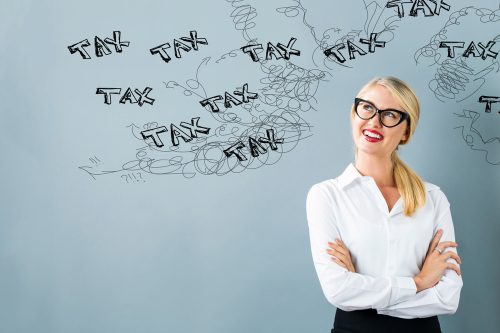Every year as tax time rolls around, students wonder what expenses they can claim to maximise their tax returns.
Knowing what’s what when it comes to top student tax deductions is essential to make the most of tax time. The Australian Tax Office (ATO) allows you to claim your self-education expenses, so if your course is related to your current job, or likely to help you earn more in your current job, you can claim it. As the ATO puts it, the course you are studying must:
- Improve the skills and knowledge required for your current employment
- Be likely to result in an increase in your income from your current employment (For example, a promotion or pay rise).
While studying is certainly an investment in your future, there are some expenses associated with undertaking training. Things like fees, books, internet use, pens and printing are often essential to your coursework, so if you’re eligible make sure you claim them at the end of financial year!

Study expenses to claim at end of financial year
If you’re a student and you find yourself wondering ‘ What can I claim at tax time?’, we’ve got you covered.
Expenses you might have related to your study that could be claimed as tax deductions include:
- Your course fees (only if you paid them yourself)
- Phone calls
- Textbooks
- Internet connection and usage
- Stationery such as planner, highlighters, notebooks and pens
- Computer consumables including printer cartridges
- Trade, professional or academic journals
Let’s dig a bit deeper into what to consider when making study-related purchases and exploring your student tax deductions:
1. Course fees:
The cost of your course is a tax deduction as long as it comes under the rules around self-education expenses as touched on above.
2. Home office expenses:
Obviously if you’re studying, you need a comfortable study environment. If you’re setting up a home office or study to optimise your study time, you can claim things like internet access, software and printer cartridges.
3. Stationery:
Being a student who also works can be a juggle at times but invest in a good yearly planner to stay on top of everything and claim it at tax time! You can also claim any other necessary stationery such as paper, notebooks, pens and highlighters.
4. Computer decline value and repairs:
These days a computer is an essential study tool and as a student training to enhance your career, you claim its decline in value (depreciation) over the length of its life. You can claim any necessary repairs too.
5. Textbooks or trade manuals:
Make sure you have the right materials for your course with the knowledge that you can claim them at the end of the financial year.
Keep track of expenses
Having a system to keep track of your expenses can go a long way toward effectively managing your tax deductions — and that could mean more money back in your bank account.
Consider having a system that will help you keep on top of your income and expenses ongoing. This might be using an app, a physical filing system like a plastic sleeve folder, or organising folders on your computer or email.
If you’re wondering what sorts of things you will be filing and keeping track of, here’s an idea:
PAYG Payment Summaries:
These used to be called group certificates, and they are a document provided to you by your employer that outlines how much money you earned, how much tax was withheld and how much superannuation you were paid.
Previous tax returns:
It’s good to keep track of your earnings and tax records, and tax returns can show you how much tax you have been getting back each year.
Bank statements:
Matching up receipts and invoices to your bank statements is called doing a bank reconciliation. This ensures you are across all the money going in and out of your bank account. It can help you to spot any unusual or unexpected charges too.
Receipts for relevant expenses:
When you make a purchase that is study or work-related, keep the receipts!

Timing matters for student tax deductions
Keep in mind that to claim tax deductions in a particular financial year, you must have incurred the expenses within the dates of that financial year. Planning your study-related spending strategically can help maximise your deductions.
Remember, if you’re not a student currently but have been thinking about upskilling in your career, you will need enrol by June 30 of the current year to claim it in this financial year!
Students and tax — getting it right
If you find tax deductions and returns confusing, using a respected reputable tax professional can ensure you maximise your return based on your individual circumstances — and get it right from the beginning. Plus, your income tax professional’s fee for their service is tax deductible too!
The same principles should apply when choosing a training provider. Not all course providers deliver high quality qualifications, so it’s vital that you do your research and choose a registered training organisation that is respected within the industry. This is especially important when you are aiming to gain qualifications in an industry like aged care or early childhood education. You need a training provider with a focus on practical, hands-on learning to ensure you graduate capable, confident and career-ready.
As a student, understanding what you can claim at tax time is essential to boost your tax return. Keep track of your eligible expenses and enrol in further studies to make the most of tax time and invest in your future.
Contact Selmar to talk about the best course for you!
Note: This information provides a general overview of student tax deductions and is not a substitute for professional taxation advice. For personalised guidance, consider reaching out to the ATO or a qualified tax professional to discuss how these deductions apply to your unique situation.



